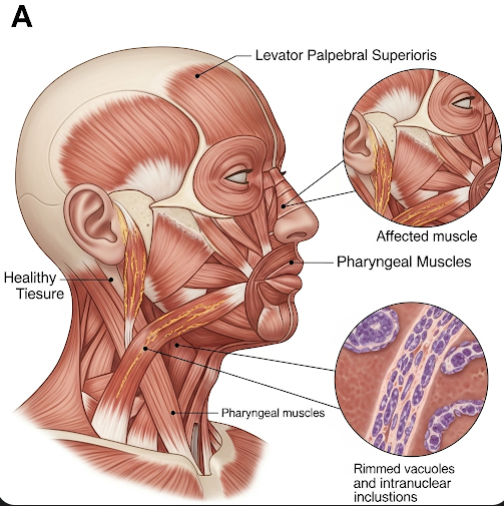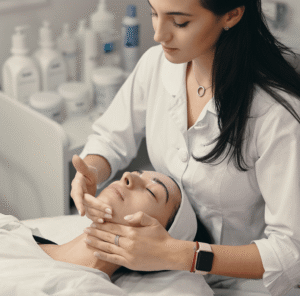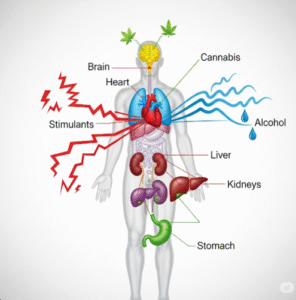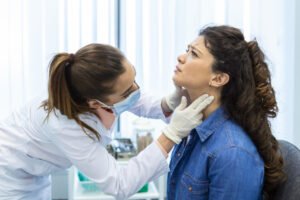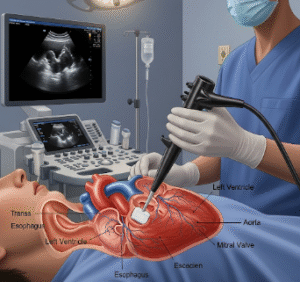Overview
Oculopharyngeal Muscular Dystrophy (OPMD) is a rare genetic neuromuscular disorder that causes progressive weakness in the muscles of the eyelids (ocular) and throat (pharyngeal). Over time, it may also affect other skeletal muscles, including those in the shoulders and limbs. The disease typically appears in adulthood, often between the ages of 40 and 60, and progresses slowly.
OPMD is one of several types of muscular dystrophy, characterized by muscle weakness and wasting due to mutations affecting the production of muscle proteins. Early symptoms often include drooping eyelids (ptosis) and difficulty swallowing (dysphagia).
What is Oculopharyngeal Muscular Dystrophy?
OPMD is a genetic condition caused by mutations in the PABPN1 gene (polyadenylate-binding protein nuclear 1). The mutation leads to the abnormal accumulation of proteins in muscle cells, resulting in their gradual degeneration.
The condition is typically inherited in an autosomal dominant pattern, meaning one copy of the faulty gene from either parent is enough to cause the disorder. Rarely, it can be inherited in an autosomal recessive form, which is usually more severe and has an earlier onset.
As the disease progresses, individuals may develop increasing difficulty with eyelid function, swallowing, and limb movement, affecting daily life and nutrition.
Symptoms
Symptoms of OPMD usually begin in mid to late adulthood and gradually worsen. Common signs include:
- Ptosis (drooping eyelids), often bilateral
- Dysphagia (difficulty swallowing), especially with solid foods
- Choking or aspiration of food
- Nasal-sounding speech or hoarseness
- Weakness in facial and throat muscles
- Proximal limb muscle weakness (especially shoulders and thighs)
- Unintended weight loss due to swallowing difficulties
- Fatigue and limited mobility in advanced stages
The severity and progression vary widely between individuals, even within the same family.
Causes
OPMD is caused by mutations in the PABPN1 gene, located on chromosome 14. This gene normally produces a protein involved in RNA processing and muscle cell function.
In affected individuals, the gene has an abnormal trinucleotide repeat expansion (GCG), which leads to protein clumping in muscle cell nuclei. These clumps interfere with normal muscle function and eventually cause cell damage and muscle atrophy.
Inheritance patterns:
- Autosomal dominant (most common): One copy of the mutated gene is enough to cause the disease.
- Autosomal recessive (very rare): Both gene copies must be mutated. Symptoms usually appear earlier and are more severe.
Risk Factors
You may be at higher risk for OPMD if you:
- Have a family history of OPMD
- Belong to populations with higher carrier rates, such as French-Canadian, Jewish (Bukharan and Sephardic), or Hispanic communities
- Inherit the mutated PABPN1 gene (even if asymptomatic in early life)
- Carry the dominant gene mutation, which increases likelihood of passing it to offspring (50% chance)
Genetic counseling is recommended for families with known OPMD.
Complications
If not managed properly, OPMD can lead to:
- Severe vision impairment due to eyelid drooping
- Malnutrition and dehydration from chronic dysphagia
- Aspiration pneumonia (due to food or fluid entering the lungs)
- Progressive disability due to muscle weakness
- Social or emotional challenges related to facial changes or speaking difficulty
While the condition does not typically shorten lifespan significantly, quality of life can be heavily affected if complications are not addressed.
Prevention
There is no way to prevent OPMD since it is genetic, but several steps can reduce complications:
- Genetic testing and counseling for at-risk families
- Prenatal diagnosis or carrier screening if family history is known
- Early recognition of symptoms for prompt treatment
- Routine monitoring of swallowing and breathing functions
- Healthy lifestyle to maintain muscle strength and avoid complications
Preventing aspiration and ensuring good nutrition are key goals in managing the disease.
Treatment Options in Korea
South Korea offers advanced care for rare neuromuscular disorders like OPMD through specialized neurological and rehabilitation clinics.
1. Diagnosis
- Neurological exam to assess muscle strength and function
- Genetic testing to confirm PABPN1 mutations
- Swallowing studies (barium swallow) to evaluate dysphagia
- Electromyography (EMG) and muscle biopsy, if needed
- MRI or CT imaging of affected muscles (optional)
2. Medical Management
There is currently no cure for OPMD, but treatments can improve symptoms and prevent complications:
- Ptosis correction surgery (blepharoplasty) to improve vision
- Speech and swallowing therapy for dysphagia
- Dietary modifications: Soft or pureed foods, small frequent meals
- Feeding tube (PEG) placement in severe swallowing difficulty
- Physical therapy and mobility support
- Medications for muscle relaxation or spasticity (if present)
3. Rehabilitation and Supportive Care
- Customized exercise programs to preserve muscle strength
- Occupational therapy for independent living skills
- Psychological support for coping with progressive symptoms
- Assistive devices: Walkers, canes, or adaptive utensils
4. Top Hospitals in Korea for Neuromuscular Disorders
- Seoul National University Hospital – Neurology and Genetic Clinic
- Asan Medical Center – Neuromuscular Disease Center
- Samsung Medical Center – Muscle and Movement Disorder Unit
- Severance Hospital (Yonsei University) – Rare Disease and Rehabilitation Center
- National Medical Center – Inherited Disease Support Program
These hospitals offer:
- Multidisciplinary care for neurology, rehabilitation, and nutrition
- Genetic counseling and testing services
- Advanced diagnostics and long-term patient monitoring
- Multilingual support for international patients

